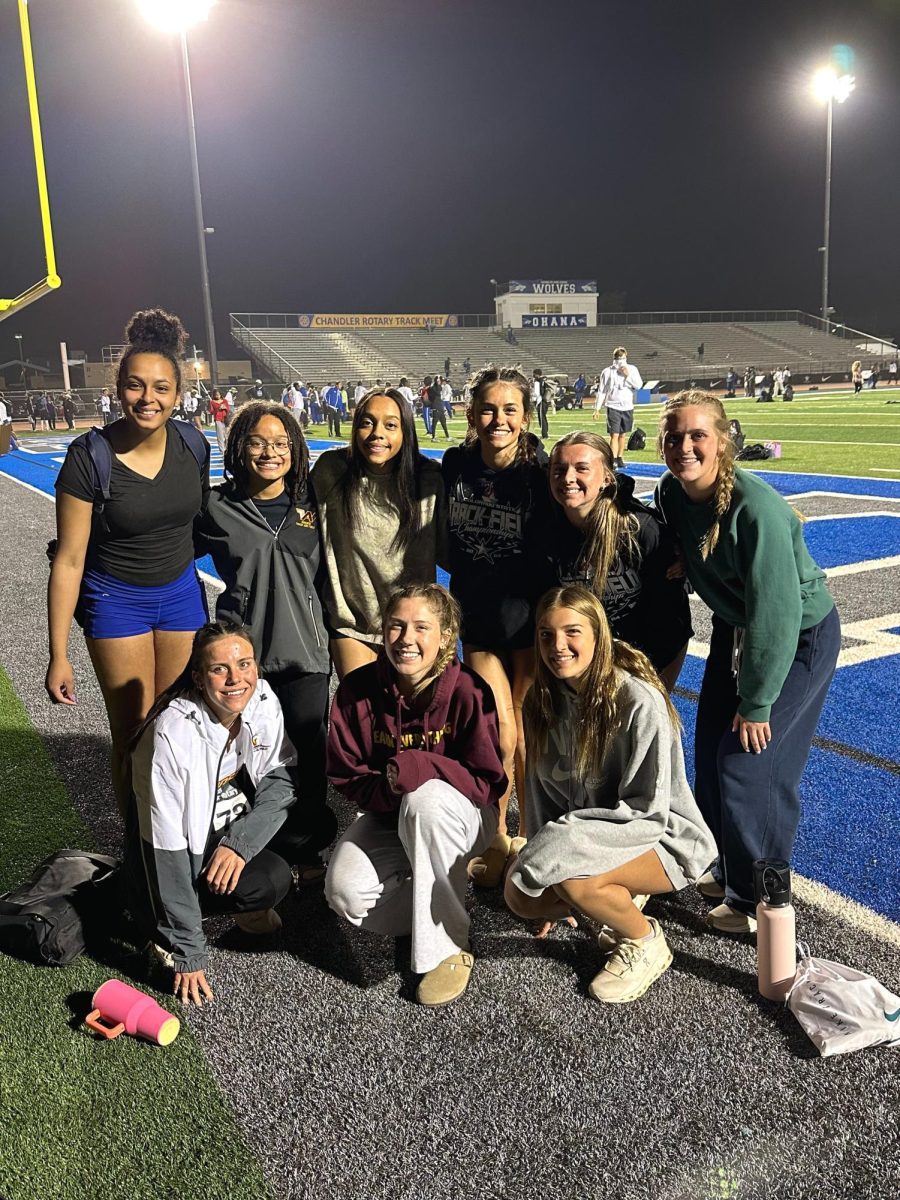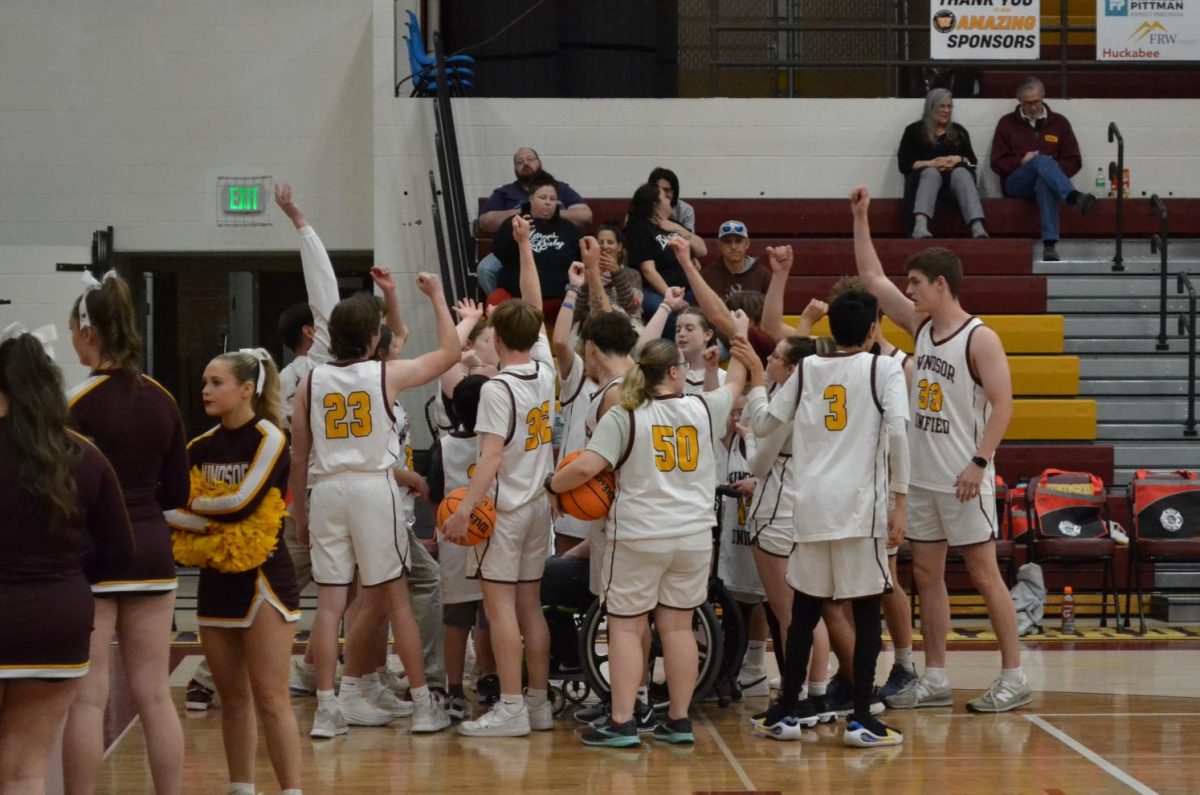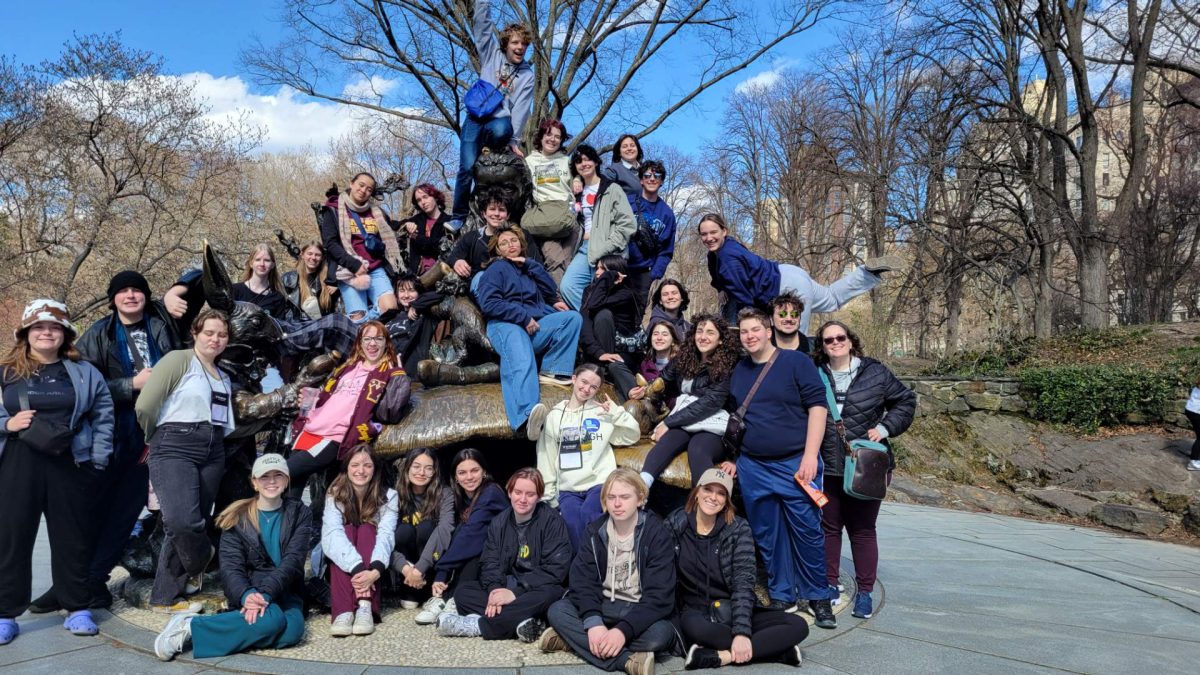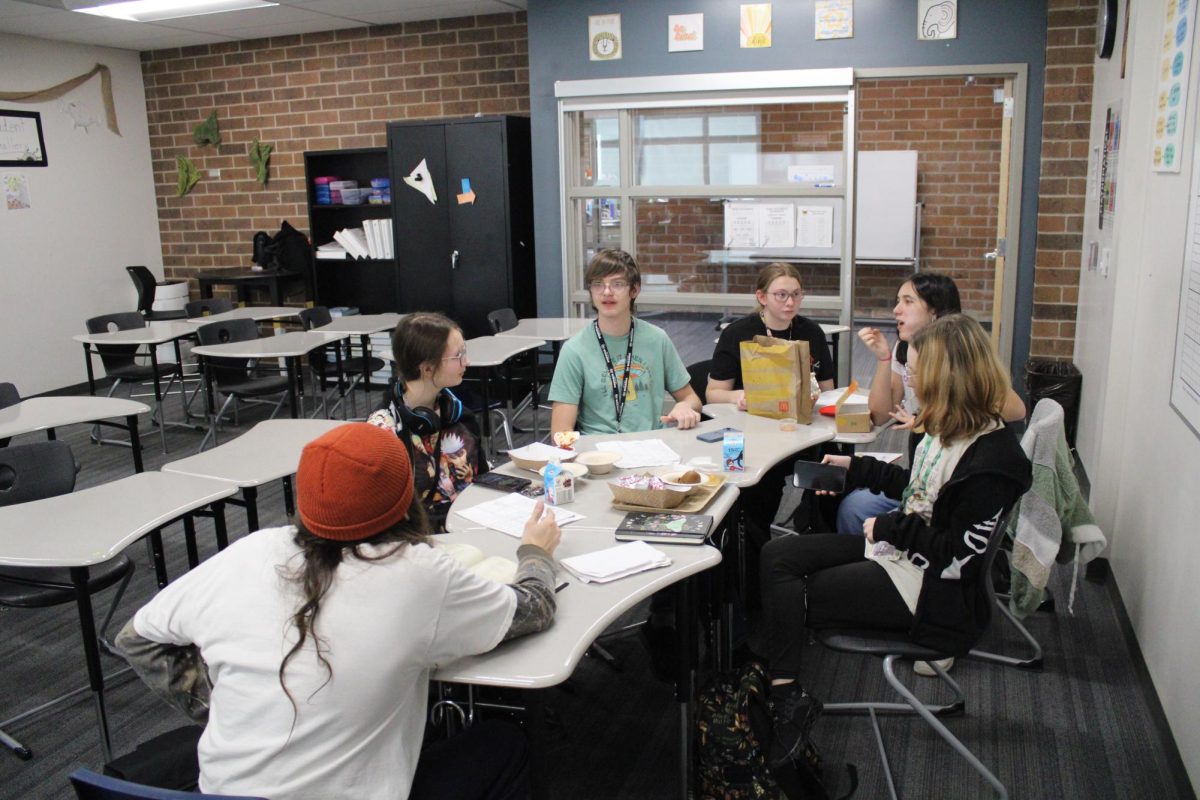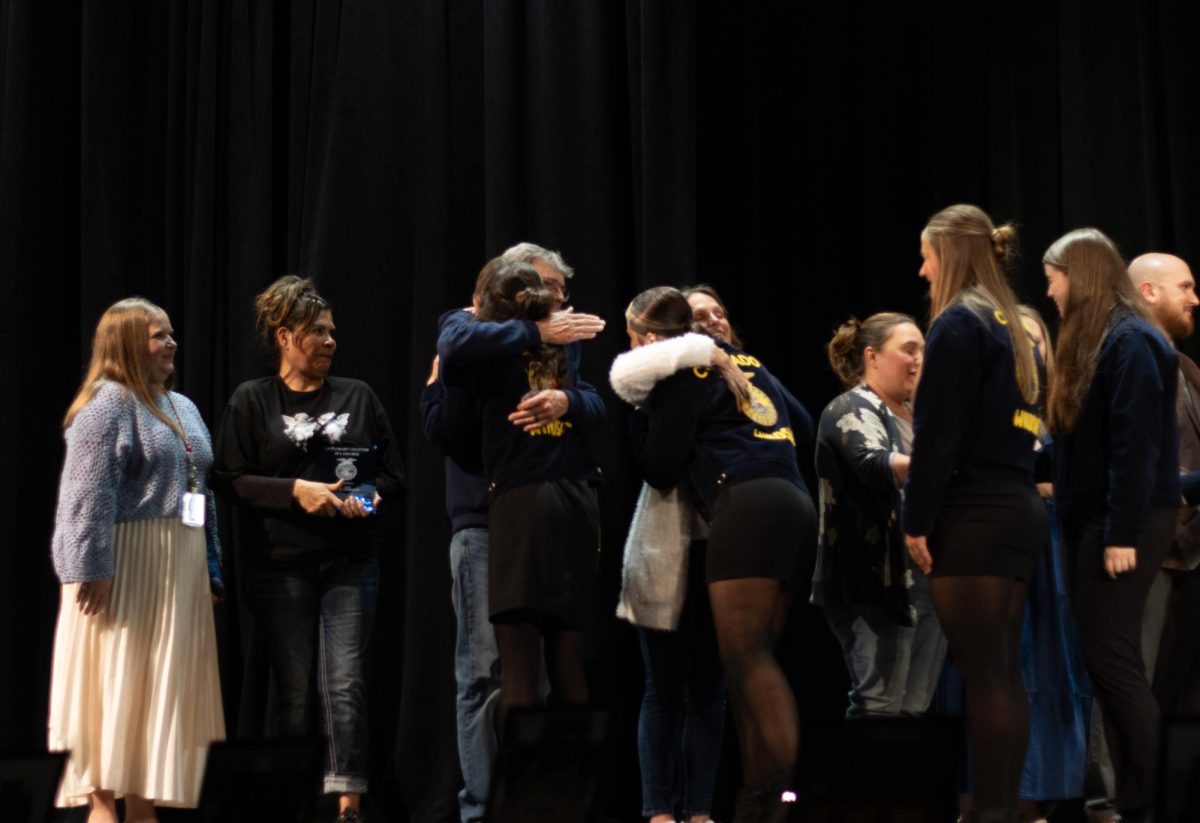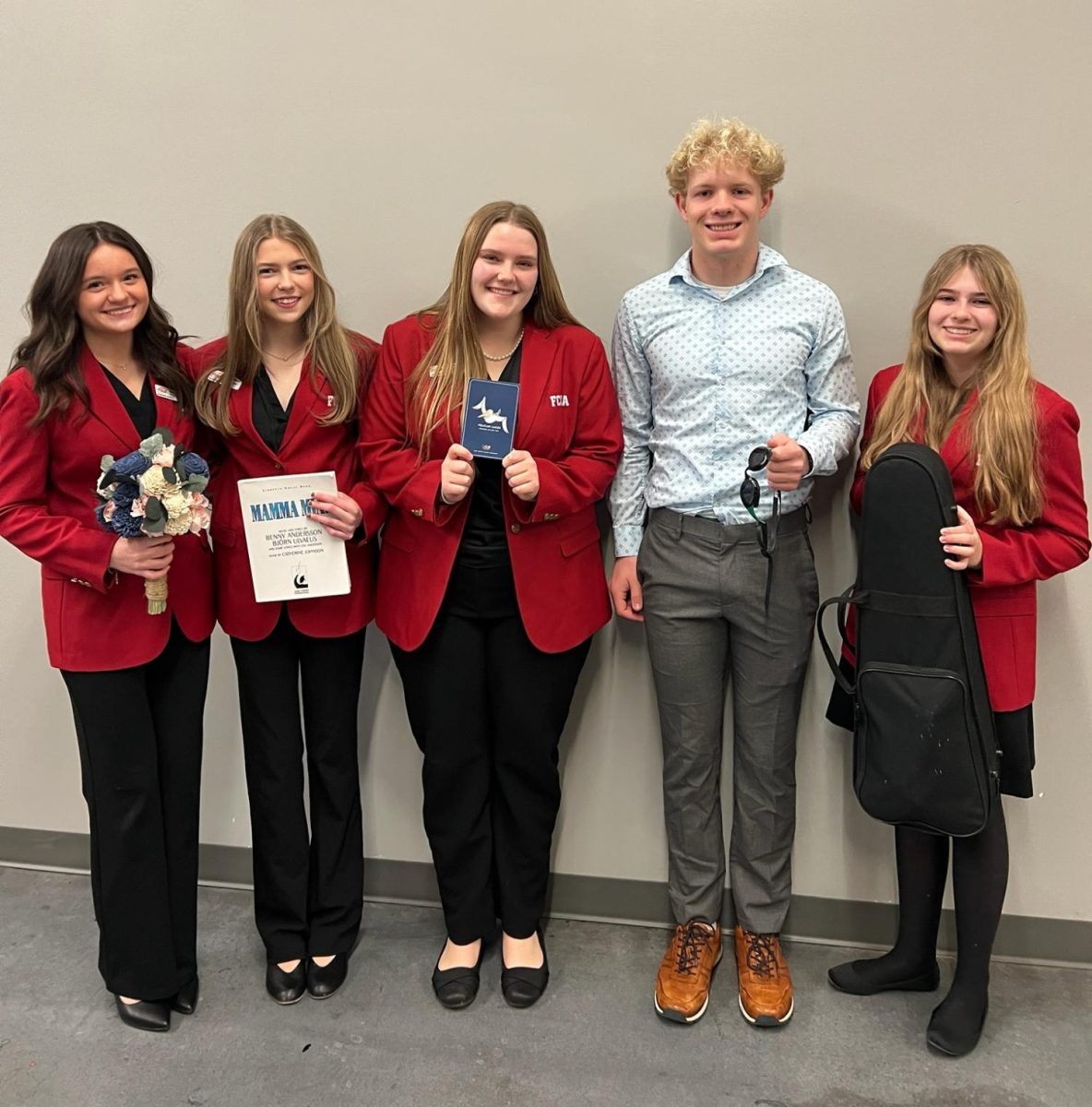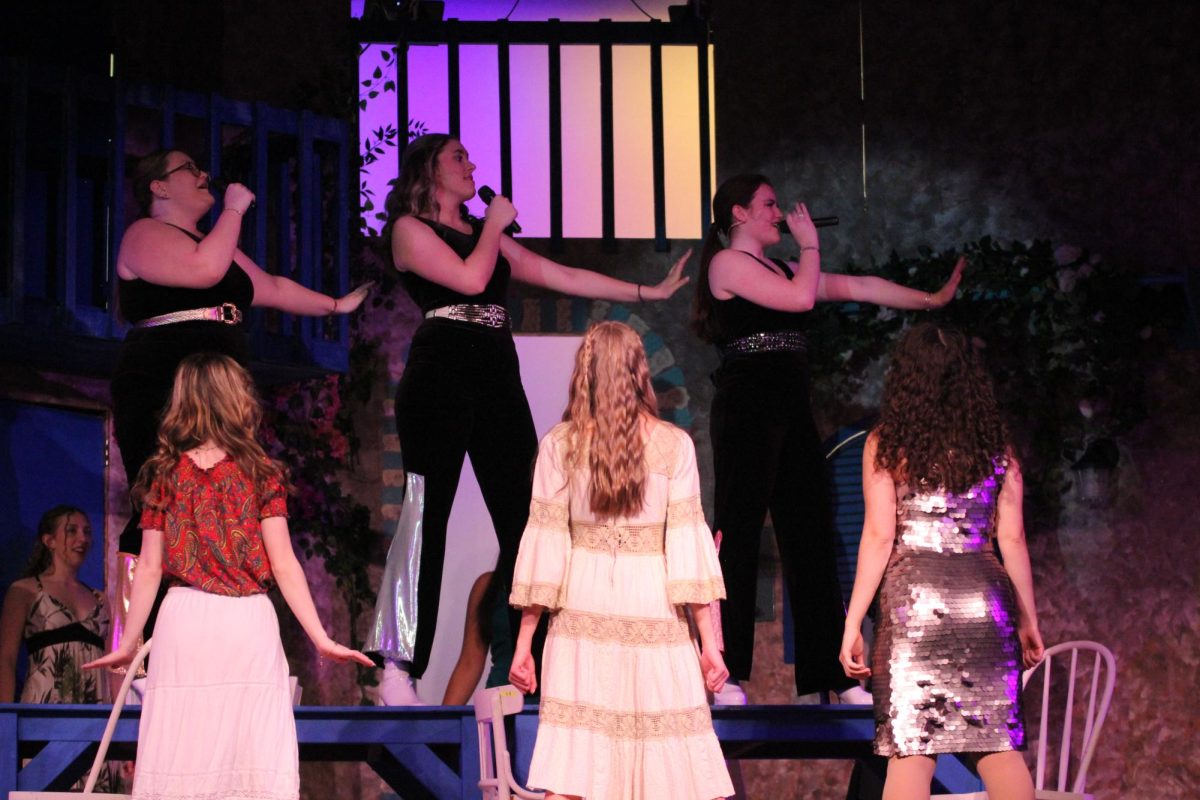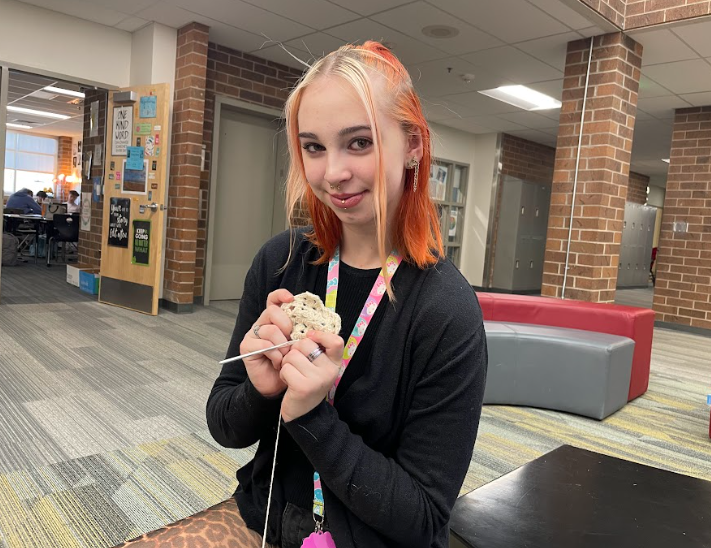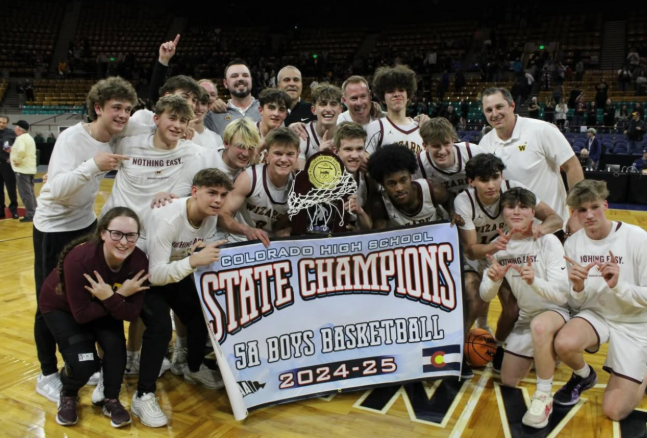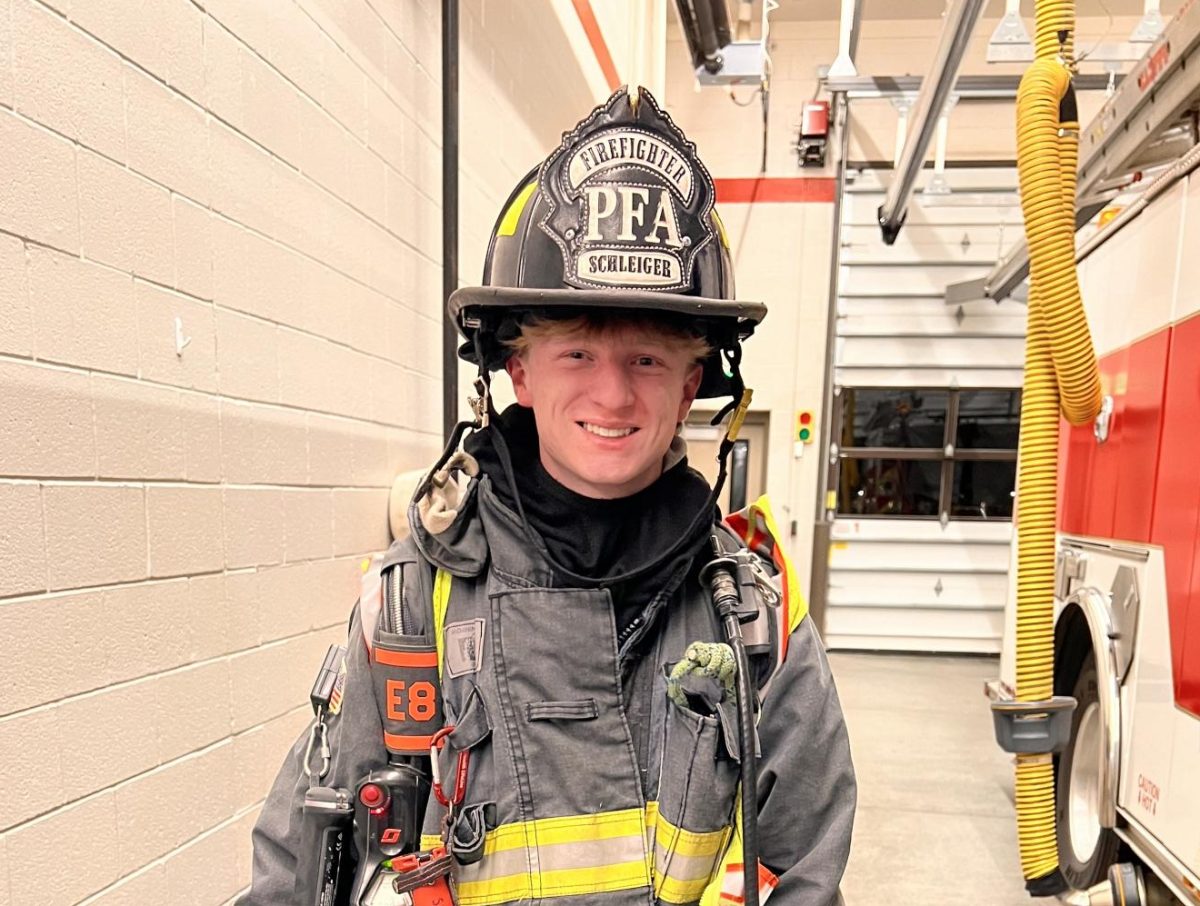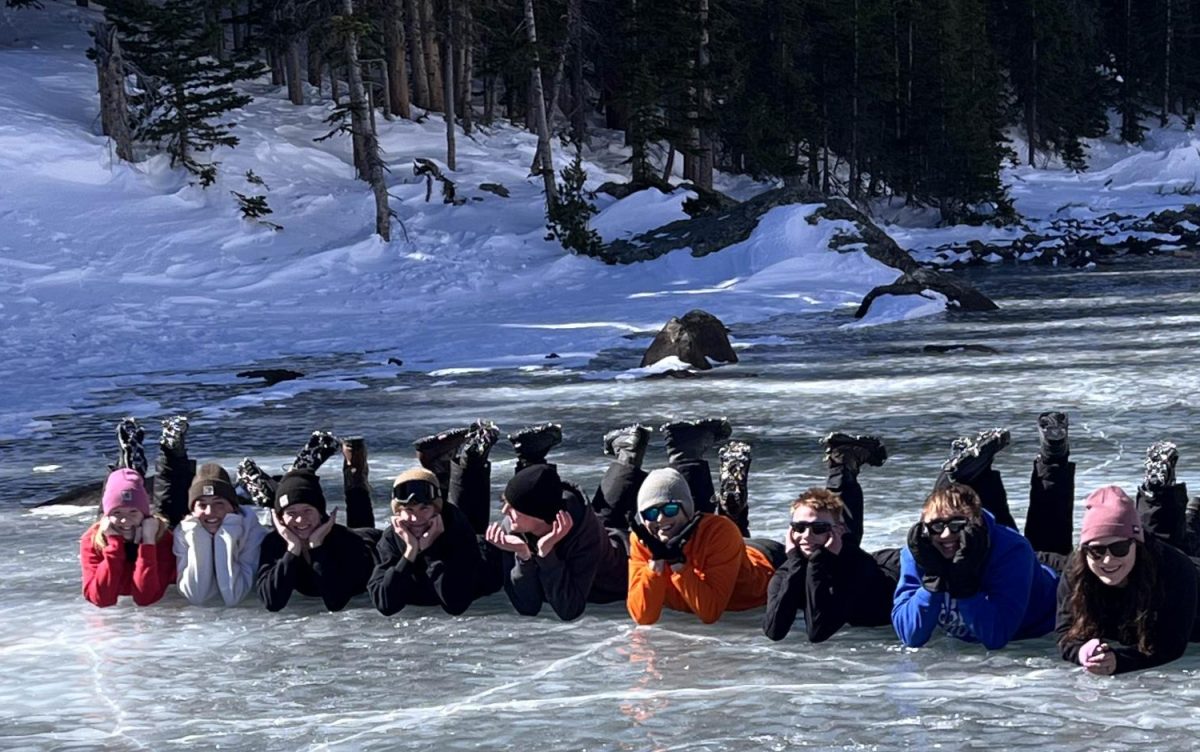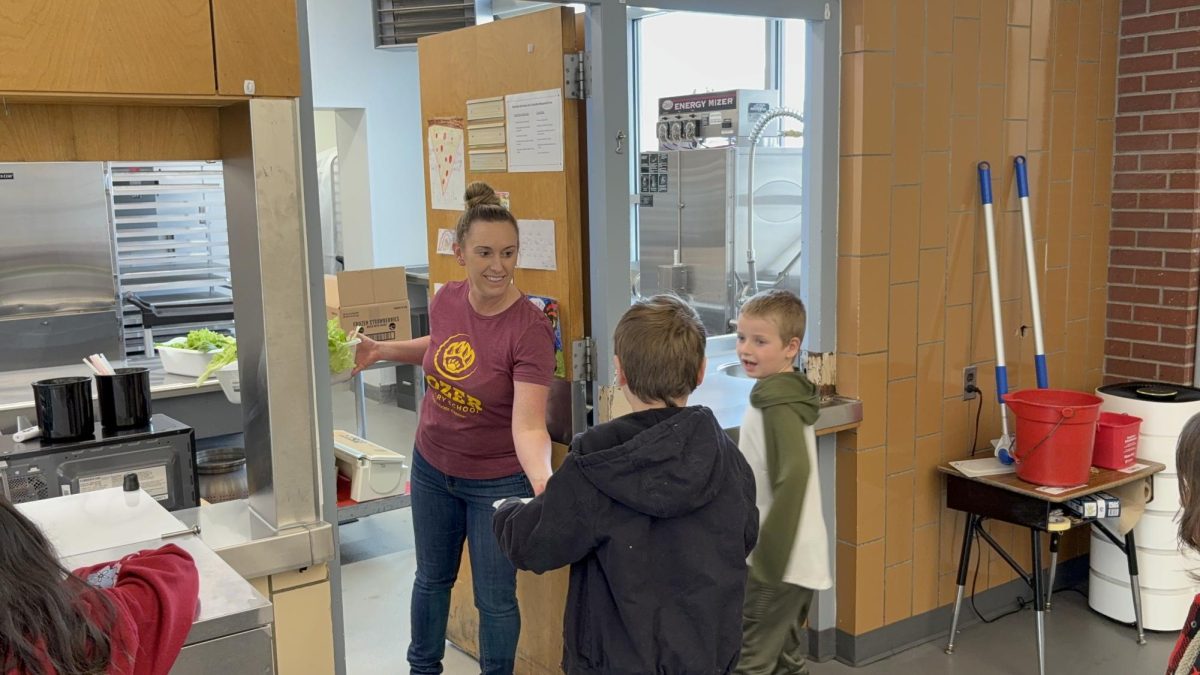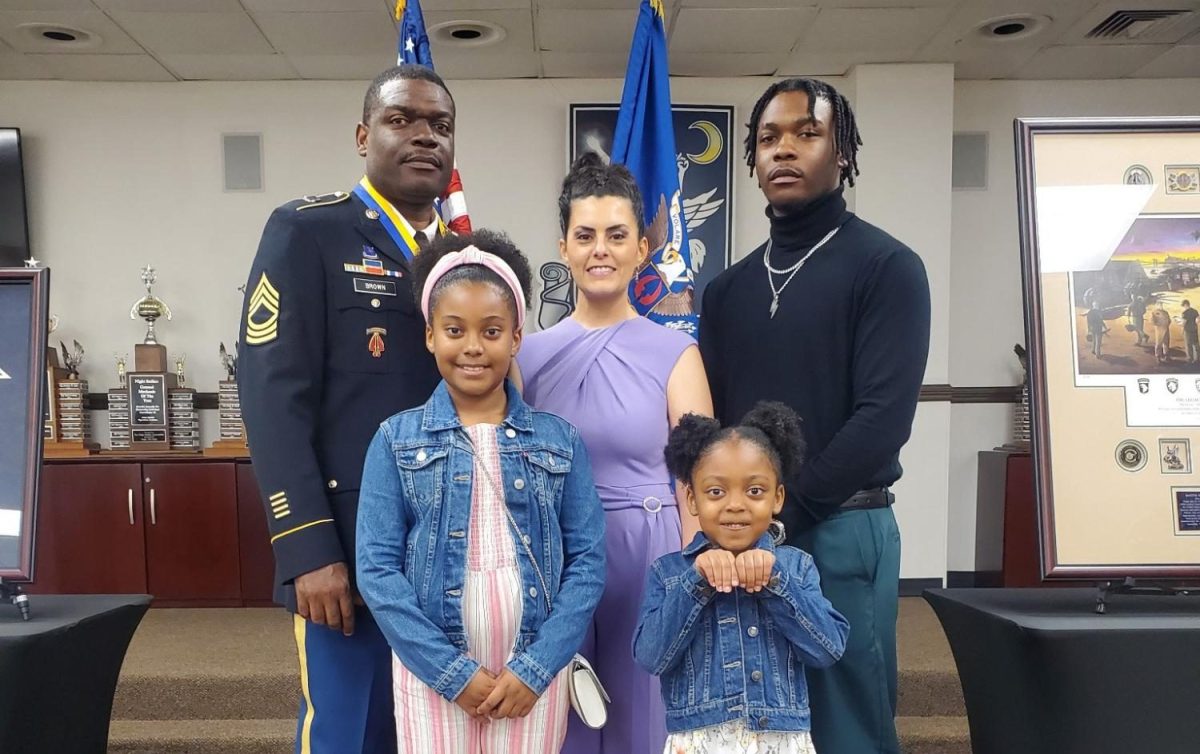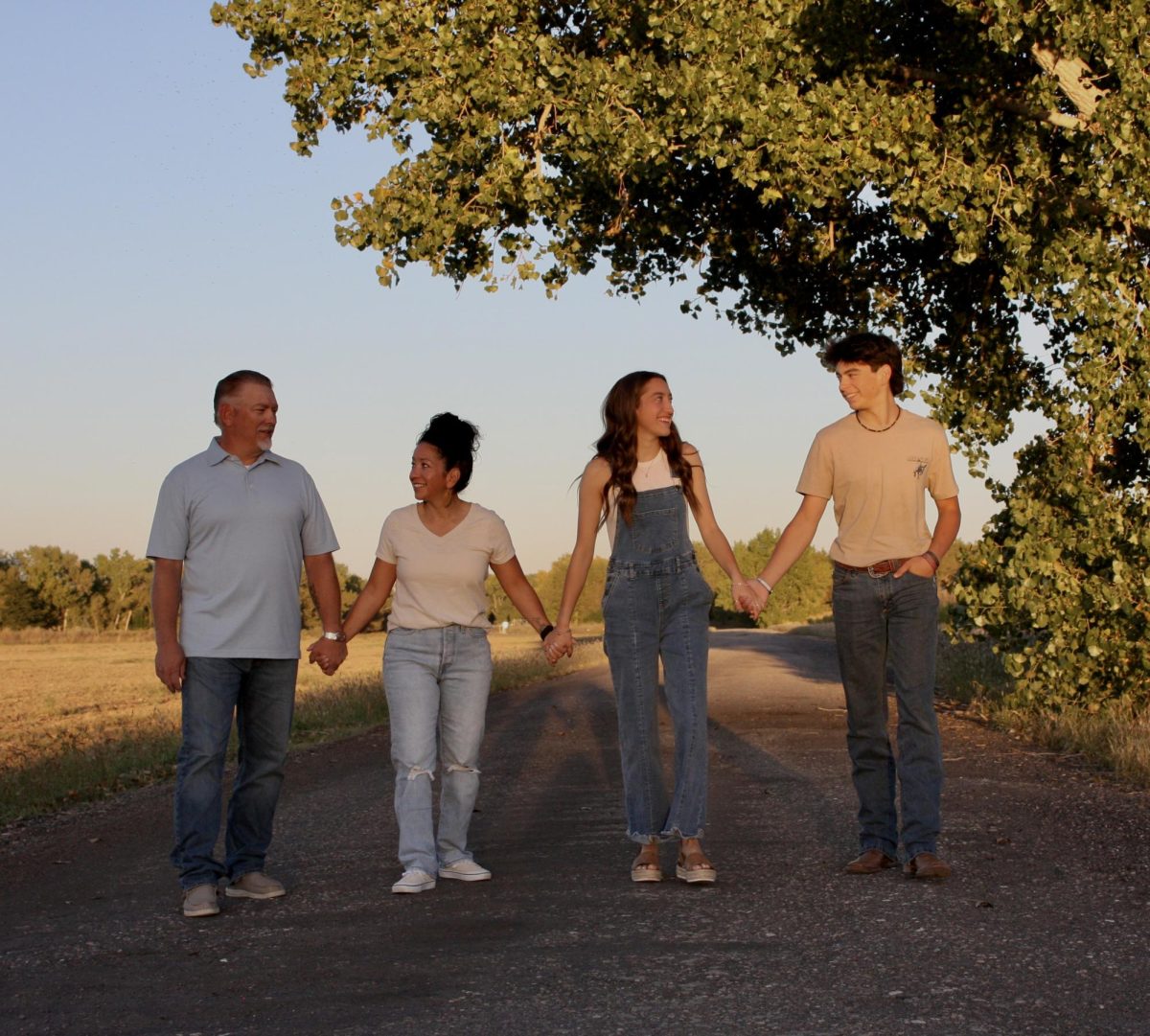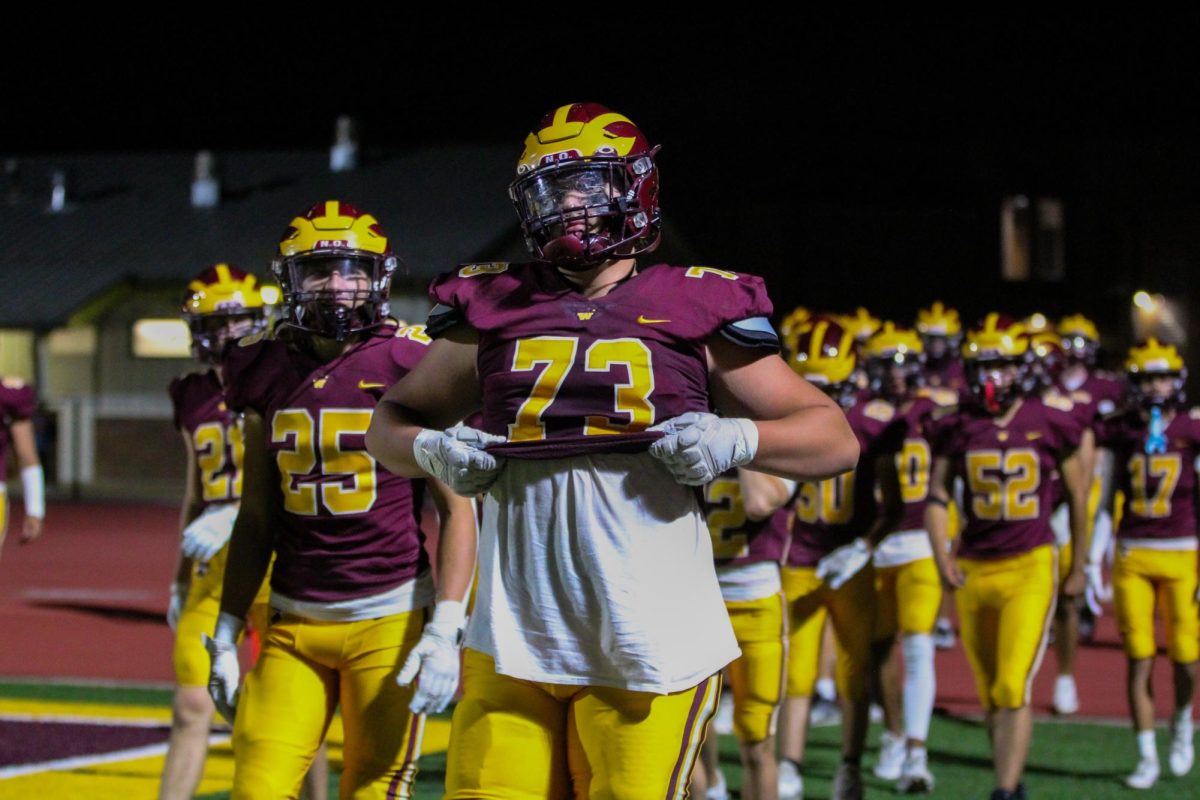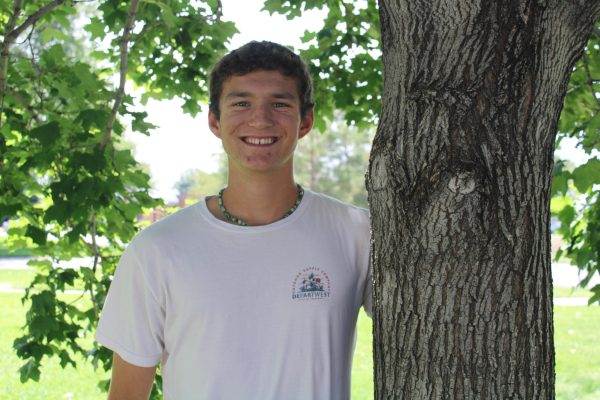Many may argue that joining the military is one of the most honorable acts of courage that one can make for their country. Although it brings a sense of honorability to the family household, it also takes a toll on the family: worrying for the safety of their loved one, the shadows of the dark unknown, the time lost with them and how that will affect the family’s dynamic.
For a long time when someone was deployed, the only means of messaging was letters, and then later email, which was all dependent on Wi-Fi. Skype is a relatively recent technology.
“I really do think the ability to Skype was created because of the pressures with the distance between loved ones during deployment, and so Skype was the most popular means to communicate. Again, that wasn’t until Iraqi Freedom much later in 2011, but initially when we got married back in 2004, email was it,” school secretary Audrey Bacon (staff) said.
Audrey’s husband, Richard, joined the military in 1990, much before they had gotten married. He served 30 years in the Special Forces and in 101st airborne; his initial line of work, which he entered at 17, was as a diesel mechanic.
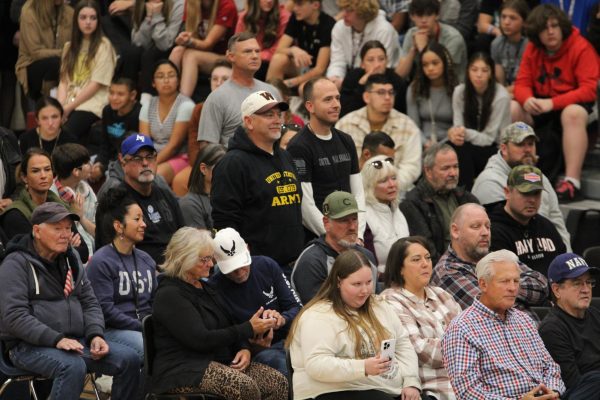
According to goarmy.com, the average length of military service is two to six years, furthermore emphasizing how committed Richard was to serving. Over that time he wouldn’t get too much time off, therefore he didn’t get much time to be with his family depending on what his roles were at the time.

“He was gone often. He would have weekend trainings where he would just be gone for weekends, but then there was also… an annual training, and he would be gone for two weeks sometimes, and then when I was in preschool, he got deployed to Afghanistan, and so he was gone for a year,” Leah Bacon (11) said. Leah is a student involved in Student Council, yearbook, newspaper and soccer.
When joining the Army some difficult aspects are the separation from family, as well as knowing there’s an increased possibility of death. With that, the family has to worry for the same reasons: that slightly plausible chance of never seeing their loved one again.
“I know it was hard for my mom. Being like, having one parent with two really young children is just super hard to manage. My grandparents helped out a lot, but one of the things that I remember most, I think, I remember is that I learned how to put Eggos in the toaster oven,” Leah said.
Even as a little kid, Leah understood that without a constant father presence, her mom would need help, even with the little things. When he would be away, Skype really was what made his deployment to Afghanistan that much easier.
“I remember Skyping my dad on the computer. Maybe once every week, once every two weeks, we got to call him on Skype. So we could see him on the computer, which was super exciting. And I just remember, we took a picture for, like, Christmas or something while he was on the computer, like, while we were Skyping him, and I just remember, I can picture that picture, and I just remember when my mom was taking the selfie and everything and it was super fun to call him every once and a while,” Leah said.
While he was away, the advancement of technology really benefited that family dynamic, enabling it to continually flourish.
However, along with the stress it puts on the family, a sense of honor also endows itself on a family during military service.
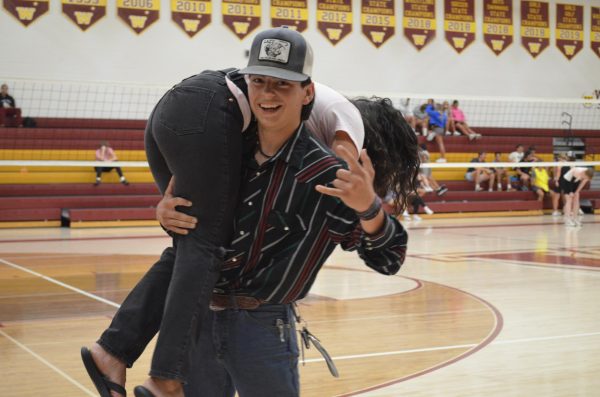
“I respect him very highly — I think the highest — of anyone in my family,” Levi Bacon (09) said, “So I have a ton of respect for him… and just knowing what he did too. I hear stories from him all the time; it’s really fun to hear those stories, but it also puts it the back of my head like ‘Wow he really, he is a good guy for what he did,'” Levi continued. Though brand new to Windsor High School, Levi has already made his mark and is also getting highly involved in the school.
What Richard did for his country was honorable; he gave up a huge portion of his life to serve, and that is both an honorable and courageous thing to do, especially due to its potential effect on a soldier’s mental state.
“The downside of being a soldier is the mental health part of it, and we’ve received numerous calls in the middle of the night about soldiers wanting to take their life. We’ve housed a soldier trying to, again, recuperate from taking his life… which he eventually did (recover),” Audrey said.
One of Richard’s duties in his higher rank was keeping soldiers from hurting themselves and their loved ones: his role was to save those that save.
“He’s received numerous calls of soldiers getting too drunk where they got out of control and either caught by the police beating up their wife or beating up their girlfriend,” Audrey said.
Soldiers have their own set of issues to overcome. Richard had the same pressures as the average soldier, which is already immense, but that was added to the pressure of making sure everyone he was over stayed mentally well.
After serving for 30 years, Richard retired in 2020, partially due to COVID-19. “He was the only soldier in the building just because he was a boss and manager of that particular building that he worked at, and his last day in the army was April first of 2020. And on that day, there was only one other soldier in the building to shake his hand and say thank you for your service,” Audrey said.
The Bacon family, after having to endure the missing presence of their father and husband as he bravely served their country, ultimately only got a small recognition for a job extremely well done when he retired.

Audrey further explained that when he did eventually come home in 2020, she organized a parade for him so that he may be honored. “When he came home, (we) filled our neighborhood streets… and applauded him, and flags and the town came together and put on a quick two-day turnaround mini parade for his homecoming. It was cool,” Audrey said.
She went on to talk about how he was upset with her because he didn’t need the recognition; the soldiers who gave their lives were those most deserving, he said. While that may be true, he wore the uniform that represented all those people, so, by applauding him, they were applauding the fallen soldiers as well.
Audrey said, “He went from being a staff sergeant to working at Home Depot at nights to provide for his family until the retirement package kicked in. So that definitely does a number on a soldier’s mentality.”
After a few years he became a utility technician for the town of Windsor. He went from working in the military to working with the general public, “which can present many, many challenges,” Audrey said.
With the military, routines and structures are in place; there are set jobs, goals and expectations. To then be thrown into situations with an unknown income and outcome can be unsettling. Through the strength of the Bacon family, they’ve been able to overcome these challenges with grace and optimism. The Bacon family, many may argue, are the epitome of the military family.
Author’s Note: Thank you for what you have done, from letting them into your home so that they may shower because they weren’t allowed to go home to feeding them McDonald’s and Subway and making a home for those soldiers who have become a danger to themselves. Thank you. And thank you, Richard Bacon, for your service.


